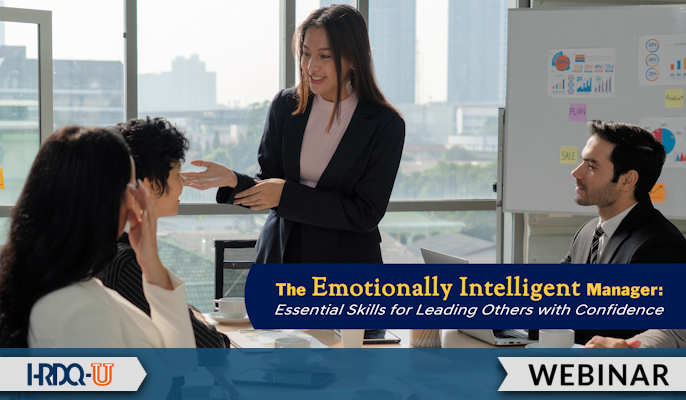Certainly, our differences can be beneficial. For example, a work team comprised of individuals with different points of view can yield better ideas and solve problems more effectively than one composed of like-minded individuals. In that situation, multiple perspectives can help the team see possibilities and opportunities that might otherwise remain hidden. However, our differences can also lead to conflict. If I am stuck in my way of thinking and you are stuck in your way of thinking, we’re likely to get bogged down in counter-productive arguments and possibly erode our relationship.
That’s where social awareness, or empathy, comes in. Put simply, empathy is an awareness of the feelings and emotions of other people. Empathy has been described as the link between the self and others because it is how we come to understand what others are experiencing as if we were feeling it ourselves.
When we exhibit empathy, we strive to understand and validate the other person’s perspective, even if we disagree with it. We try to see the situation, problem, or issue through their eyes. As Marshall Rosenberg, the late American psychologist, mediator, and author, wrote:
Peace requires something far more difficult than revenge or merely turning the other cheek; it requires empathizing with the fears and unmet needs that provide the impetus for people to attack each other. Being aware of these feelings and needs, people lose their desire to attack back because they can see the human ignorance leading to these attacks; instead, their goal becomes providing the empathic connection and education that will enable them to transcend their violence and engage in cooperative relationships.
Of course, “empathizing with the fears and unmet needs” of others can be exceedingly difficult once we become entrenched in our own point of view. How can we loosen our grip on our own assumptions and judgments and remain receptive to those of others?
I believe the answer is to become better listeners.
Listening and hearing are often used interchangeably, but they are not the same. Hearing is defined as the ability to perceive sounds by detecting vibrations through the ear. Listening, however, is a conscious act that we do when we’re trying to interpret or understand a sound we’ve heard. We hear sounds all day, but we only truly listen when we pay attention and expend effort to make sense of those sounds.
Why is listening such a key tool for increasing empathy? Because it is only when we listen with intent that we can begin to understand someone else’s perspective or point of view. Listening requires us to momentarily put aside our own point of view and open ourselves up to an alternative one. That means accepting the possibility that our perspective isn’t necessarily the only one or even the right one. Add in all of the distractions and noise we face on a daily basis, and listening becomes even more challenging. Yet, it’s the most effective skill we have for increasing our awareness of others’ needs.
Fortunately, there’s an “app” that can help us listen more effectively. But you won’t find it on any mobile device. It’s an app you can begin using right away to strengthen your listening skills. It may look easy, but doing these things consistently is actually quite difficult.
Our Listening App
Our listening app is an acronym that stands for Attending, Probing, and Paraphrasing. Let’s look at each one in turn.
Attending
Attending is the act of giving someone your full attention. It shows you are present, focused, and interested in what the other person is saying. Attending encourages the other person to keep sharing freely because they feel safe and respected.
We all know what it feels like when the person we’re talking to is distracted. Perhaps he or she is looking at their phone, glancing around the room to see who else is there, or simply looking off into space. When we observe this behavior, it makes us feel like what we’re sharing isn’t important. We might get angry or even shut down and disengage from the conversation.
When you attend, you use your whole body to demonstrate interest:
- Maintain eye contact
- Nod your head to show understanding
- Lean forward slightly
- Ignore distractions in the immediate environment
That last item is particularly difficult. We live in a noisy world, and it’s very easy to become preoccupied and unfocused when someone is speaking to us. Attending can be particularly challenging when we’re on the phone. Without the visual cues that would be available to us in person, we need to rely on our voices alone (“Yes, I’m listening” or “Go on, I’m listening”) to attend to the other person. This requires discipline and self-control.
Probing
Probing, or asking good questions, is another important aspect of good listening. Asking questions not only shows that you care about what the other person is saying but also helps uncover additional information that may be important.
There are many different types of questions, but the important thing to remember is to ask them with sincerity and genuine curiosity. Here are some examples:
- Can you tell me more?
- Are you OK?
- How did that happen?
- What caused that?
- What did you do?
- What did you WANT to do?
- How did you feel about that?
- How was it resolved?
- What are your next steps?
Paraphrasing
Paraphrasing is restating what you’ve heard using your own words. As with attending and probing, paraphrasing indicates interest and offers an opportunity to gain clarity. Paraphrasing not only demonstrates that we want to understand the other person but enables us to test that what we thought we heard is actually what the speaker meant. But, remember to use paraphrasing occasionally. Paraphrasing too often can get annoying for the speaker and feel more like interrupting if you’re not careful.
Relationship Management
The fourth and final dimension of emotional intelligence is relationship management. Relationship management is all about social skills – our ability to form and sustain healthy, mutually rewarding relationships. We can do this in lots of ways, but primarily by building trust, helping others, and possessing a genuine desire to see other people succeed.
In his classic Harvard Business Review article, “What Makes a Leader?” EQ pioneer Dr. Daniel Goleman writes:
Is social skill considered a key leadership capability in most companies? The answer is yes, especially when compared with the other components of emotional intelligence. People seem to know intuitively that leaders need to manage relationships effectively; no leader is an island. After all, the leader’s task is to get work done through other people, and social skill makes that possible. A leader who cannot express his or her empathy may as well not have it at all. And, a leader’s motivation will be useless if he cannot communicate his passion to the organization. Social skill allows leaders to put their emotional intelligence to work.
Tips to Improve Relationship Management Skills
If you want to improve your relationship management skills, I recommend starting with these six tips:
- Be genuinely interested in other people. There is a saying that goes, “There are two kinds of people. The first kind walks into a room full of people and says, ‘Here I am.’ The second kind walks into the same room and says, ‘There you are.’” Individuals with strong relationship management skills focus on other people rather than themselves.
- Give others your undivided attention. We covered this idea earlier when we discussed social awareness, but it bears mentioning here. When you are engaged with another person in a conversation, do everything you can to stay focused and present. Don’t allow yourself to become distracted by what’s going on around you. Don’t interrupt or finish their sentences, either. Your full attention is a gift the other person will surely appreciate.
- Be on time for appointments. Nothing says “I don’t value your time” like being routinely late for appointments and meetings. Plan to arrive 5-10 minutes early so you can get settled and be completely ready at the scheduled time. And if you are running late, be sure to give the other person a heads-up. It’s the courteous thing to do.
- Be reliable 100% of the time. You can’t be reliable some of the time – either you’re a reliable person, or you’re not. Say what you’re going to do, and then do it. If a problem arises, don’t wait to let the other person know. And if the problem is your fault, don’t blame others. Take responsibility and resolve to fix it.
- Ask others how you can help. People with strong relationship management skills see themselves as being in service to others. Share your time, wisdom, and resources with those who could benefit. Your generosity will come back to you.
- Be kind and courteous. This is all about treating others the way you would want to be treated. A little kindness and courtesy can be remarkably effective and are the heart of good relationship management.
There you have it! The four dimensions of emotional intelligence: self-awareness, self-management, social awareness, and relationship management. Identify which dimension presents your greatest opportunity for development and start small with a single behavioral change. Remember, just thinking about doing things differently isn’t enough. You have to change your behavior if you want results!
Focus on that one behavioral change until it becomes natural. Then, choose another and work on that one. Strengthening emotional intelligence is a lifelong commitment. It takes effort and motivation, but the results will be worth it.
















